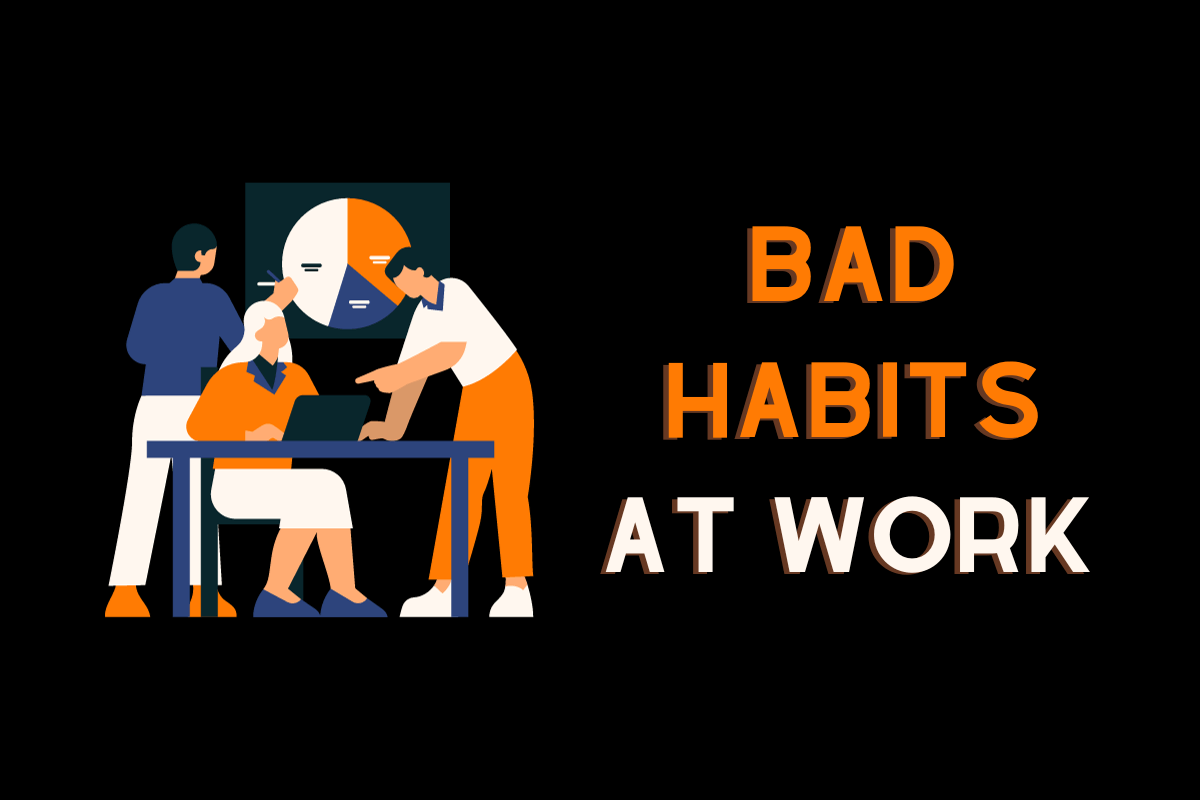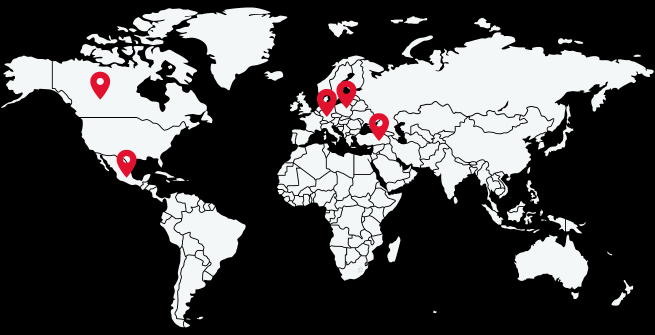In the ever-evolving landscape of the professional world, success is not merely determined by skills and knowledge but is intricately tied to work habits and ethics.
Without necessarily even being aware of it, many people suffer from having bad work habits, which can have a profound negative impact on professional success. The main culprits, which are procrastination, lack of organization, poor time management, and a negative attitude can all contribute to a less-than-ideal work performance.
Procrastination, for instance, delays tasks and projects, leading to rushed and often subpar results. Lack of organization can result in missed deadlines and important details slipping through the cracks.
Poor time management can make you feel constantly overwhelmed and hinder your ability to prioritize tasks effectively. And a negative attitude not only affects your own motivation and productivity but can also impact the overall work environment and relationships with colleagues.
Addressing these bad habits is like conducting preventive maintenance on your career. Developing good work habits, on the other hand, can set the stage for increased productivity, better relationships with colleagues, and overall professional success. It’s like investing in a sturdy scaffold that supports your growth and achievements.
So, it’s worth taking the time to identify and rectify any detrimental work habits to pave the way for a more successful and fulfilling career.
What Are Bad Work Habits?

Before we explore the consequences, it’s crucial to understand what constitutes bad work habits. These are recurrent behaviors that hinder productivity, collaboration, and overall work efficiency.
Common Examples of Bad Work Habits
Procrastination
The silent productivity killer, procrastination, delays tasks and projects, leading to rushed and subpar results. Recognizing and addressing this habit is pivotal for individual and collective success.
Lack of Punctuality
Consistently arriving late not only disrupts your schedule but also affects the flow of work in the team. Punctuality is a reflection of commitment and professionalism.
Poor Communication
Effective communication is the backbone of any successful workplace. Poor communication can lead to misunderstandings, conflicts, and a breakdown of teamwork.
Neglecting Responsibilities
Avoiding or neglecting assigned tasks can have a ripple effect on the entire team. It erodes trust and creates an unproductive work environment.
Examples of Bad Work Behaviors: What You Don’t Want To Do

The first step to breaking bad work habits is to recognize them. The following are a few real-life situations that serve as examples of behaviors associated with poor work habits.
Blaming Others
Individuals with bad work habits often deflect responsibility by blaming others for their shortcomings. Recognizing and addressing this behavior is crucial for personal growth.
Resisting Feedback
Resisting constructive feedback impedes personal and professional development. Embracing feedback is a vital step toward overcoming bad work habits.
Engaging in Gossip
Gossip creates a negative workplace culture and undermines trust among colleagues. Avoiding gossip is a step toward fostering a positive work environment.
Displaying a Negative Attitude
A negative attitude can spread like wildfire, affecting team morale and hindering collective success. Cultivating a positive mindset is essential for a healthy workplace.
The Crucial Role of Work Habits and Ethics

Work ethics are the guiding principles that govern behavior in the workplace. They encompass values like responsibility, integrity, and professionalism. Understanding that the bad work habits you have are not reflective of the ethics you would like to uphold is a significant step to awareness.
Somehow and unbeknownst you may have developed poor work ethics, which once understanding them will allow you to catch yourself from falling back into the same pitfall to create lasting change.
Examples of Poor Work Ethics
Lack of Accountability
Failure to take responsibility for one’s actions undermines trust and can have severe repercussions on team morale.
Dishonesty
Integrity is a cornerstone of work ethics. Being dishonest, whether in communication or actions, erodes trust and damages professional relationships.
Lack of Teamwork
A successful workplace thrives on collaboration. A lack of teamwork disrupts synergy and impedes the achievement of common goals.
Unreliability
Consistently failing to fulfill commitments or meet deadlines portrays unreliability, negatively impacting both individual and team performance.
The Impact of Bad Work Ethics and Habits on the Workplace
Having bad work ethics and habits not only hinders your success and thus happiness, but it also detracts from the entire team’s success. The following are just some of the negative effects of conducting bad work habits.
Decreased Productivity
Bad work habits inevitably lead to decreased productivity. Procrastination, poor time management, and neglect of responsibilities hinder progress and result in missed deadlines.
Negative Impact on Team Dynamics
The collaborative nature of most workplaces means that individual habits can affect the entire team. Lack of teamwork and communication issues can create a toxic work environment.
Effect on Professional Reputation
Consistently displaying bad work habits can tarnish one’s professional reputation. Colleagues and superiors may perceive a lack of dedication and reliability, hindering career growth.
Overcoming Bad Work Habits
It’s easy to change bad work habits into practices that instead will serve you once you see the light. Many people simply don’t realize that they have bad habits that are not aligned with the values they aspire to uphold.
Therefore, seeing the bad habits, recognizing the poor ethics they serve and embarking on personal improvement while also being open to feedback as insight are the ways to switch your bad work habits into best practices.
How to change bad work habits into good ones

Identifying and Acknowledging Bad Habits
The first step toward improvement is self-awareness. Identifying and acknowledging bad habits is the foundation for personal and professional growth.
Setting Goals for Personal and Professional Improvement
Setting realistic and measurable goals helps individuals focus on overcoming specific bad habits. This proactive approach propels continuous improvement.
Seeking Feedback and Constructive Criticism
Feedback from colleagues and supervisors provides valuable insights into areas that need improvement. Embracing feedback fosters a culture of continuous learning and growth.
Developing Good Work Habits
Through self-reflection and commitment to improvement, cultivating positive work habits is what will propel us to higher levels. Building a strong work ethic involves embracing responsibility, maintaining integrity, and consistently delivering high-quality work.
The ethics and habits contribute to increased productivity, efficiency, and overall job satisfaction. Individuals who exhibit positive work habits become catalysts for a healthier workplace culture. Setting a positive example inspires colleagues and contributes to a more cohesive team.
When individuals and organizations invest in fostering positive habits, full potential becomes unlocked and the possibilities for growth and achievement boundless.
The bottom line is, whether we realize it or not, is that bad work habits have far-reaching consequences by negatively impacting productivity, teamwork, and professional reputation. Recognizing and addressing these habits is crucial for individual and collective success by creating a work environment where everyone can thrive.



